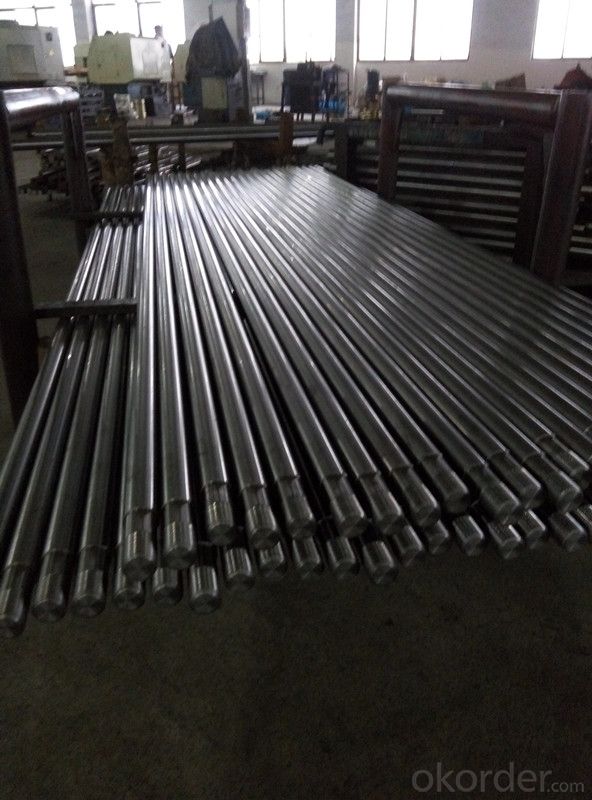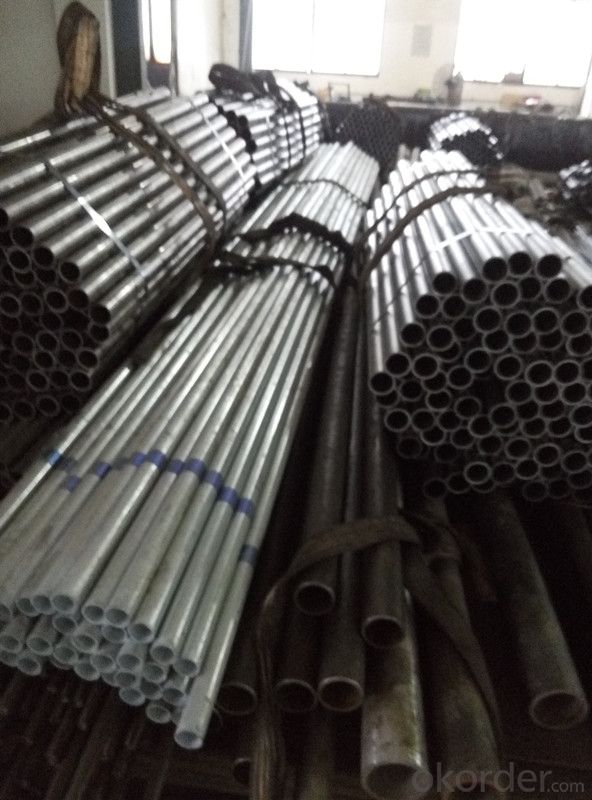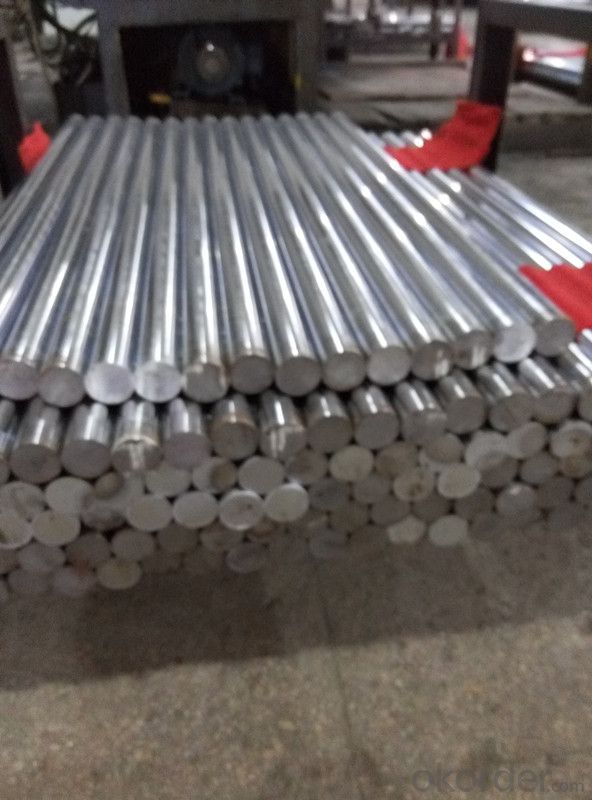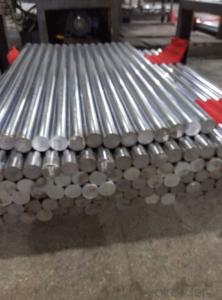S45C Round Bar Chromed Steel Round Bar-Steel Round Bar
- Loading Port:
- Tianjin
- Payment Terms:
- TT OR LC
- Min Order Qty:
- 25 m.t.
- Supply Capability:
- 50000 m.t./month
OKorder Service Pledge
OKorder Financial Service
You Might Also Like
Item specifice
S45C Round Bar Chromed Steel Round Bar-Steel Round Bar
Product Details:
1. Material: Alloy structural steels, carbon structure steels, alloy tool and model steels,etc.
2. Process: EAF + LF + VD + Forged + Heat Treatment (optional)
3. Delivery condition:Hot forged +Rough machined (black surface after Q/T)+ Turned (optional)
4.Technical Data: Chemical Composition, Physical Properties and Mechanical Testing.
5. Test: Ultrasonic test according to SEP 1921-84 3C/c.
Chemical Composition:
C | Si | Mn | P | S | Cr | |
45Cr | 0.42-0.49 | 0.17-0.37 | 0.6-0.9 | Max0.035 | Max0.035 | 0.3 0.4 |
S45C | 0.42-0.48 | 0.15-0.35 | 0.6-0.9 | Max0.030 | Max0.035 | |
1045 | 0.43-0.5 | 0.15-0.35 | 0.6-0.9 | Max0.030 | Max0.050 |
Application:
1 Can be used in many fields such as building, automobile, shipbuilding,
petrochemical, machinery, medicine, food, electric power, energy, space, building
and decoration, etc.
2 Can be made into mould template, mortise pin, column
3 This kind of steel have good mechanical property, is widely used in structural parts
4 which may support stress alternation, especially made into some connecting
rods, bolts, wheel gear...
5 This kind of steel is the most common blanks and materials of shaft part
Product Show:



- Q:What are the requirements for special steel used in textile machinery?
- The requirements for special steel used in textile machinery include high strength and durability, excellent corrosion resistance, good wear resistance, and the ability to withstand high temperatures and pressures. Additionally, the steel should have good machinability and be able to maintain dimensional stability under various operating conditions.
- Q:How is electrical steel used in the production of transformers and motors?
- Electrical steel is primarily used in the production of transformers and motors due to its magnetic properties. It is used as the core material in the construction of transformers to efficiently transmit electrical energy by reducing energy losses through magnetic hysteresis and eddy currents. In motors, electrical steel is used to create the stator and rotor laminations, which enhance the magnetic field and enable efficient conversion of electrical energy into mechanical motion. Overall, electrical steel plays a crucial role in improving the performance and energy efficiency of transformers and motors.
- Q:Can special steel be used in the agricultural industry?
- Yes, special steel can be used in the agricultural industry. It is often utilized in the manufacturing of various farm equipment and machinery, such as plows, harrows, cultivators, and tractor components. Special steel's high strength, durability, and resistance to corrosion make it suitable for withstanding the demanding conditions and prolonged use in agricultural operations.
- Q:How is special steel used in the production of bearings for high-speed applications?
- Special steel is used in the production of bearings for high-speed applications due to its unique properties such as high strength, hardness, and resistance to wear and fatigue. These bearings are subjected to intense loads and rotational speeds, and special steel helps ensure optimal performance and longevity. The use of special steel in bearing production allows for improved precision, reduced friction, and increased durability, ultimately enabling bearings to withstand the demanding requirements of high-speed applications.
- Q:How does special steel resist corrosion?
- Special steel resists corrosion due to the presence of specific alloying elements, such as chromium or nickel, which form a protective layer on the surface of the steel. This layer acts as a barrier, preventing oxygen and moisture from reaching the underlying steel and thus preventing the formation of rust or corrosion.
- Q:What are the different methods for improving the magnetic properties of special steel?
- There are several methods that can be employed to improve the magnetic properties of special steel. 1. Heat Treatment: One common method is heat treatment, which involves subjecting the steel to specific heating and cooling processes. This can help to alter the atomic structure of the steel and enhance its magnetic properties. For example, annealing the steel at high temperatures followed by slow cooling can lead to the formation of a fine-grained microstructure, resulting in improved magnetic properties. 2. Alloying: Another approach is to add certain alloying elements to the steel. For instance, the addition of small amounts of elements like nickel, cobalt, or aluminum can significantly enhance the magnetic characteristics of the steel. These alloying elements can help to increase the saturation magnetization and improve the coercivity of the material. 3. Cold Working: Cold working, also known as cold deformation, involves subjecting the steel to mechanical stress at low temperatures. This process can cause the formation of dislocations and defects within the crystal structure of the steel, which can improve its magnetic properties. Cold working can lead to increased magnetization, improved permeability, and reduced hysteresis losses. 4. Grain Orientation: Another method is to align the grains of the steel in a specific direction. This can be achieved through processes like hot rolling or magnetic annealing. By aligning the grains, the steel can exhibit anisotropic magnetic properties, meaning it will have different magnetic characteristics depending on the direction of the applied magnetic field. 5. Surface Treatments: Surface treatments can also be employed to enhance the magnetic properties of special steel. Coatings like electroplating, electroless plating, or chemical vapor deposition can be used to modify the surface of the steel, leading to improved magnetic performance. These treatments can help to reduce eddy current losses, enhance corrosion resistance, and increase the magnetic permeability of the material. It is important to note that the choice of method for improving the magnetic properties of special steel depends on the specific requirements and desired characteristics. Each method has its advantages and limitations, and the selection should be made based on factors such as cost, feasibility, and the desired magnetic performance.
- Q:What are the different methods for improving the corrosion resistance of special steel?
- There are various methods for improving the corrosion resistance of special steel. One common approach is the addition of alloying elements such as chromium, nickel, and molybdenum, which form a protective oxide layer on the steel's surface. Surface treatments like galvanizing, electroplating, or applying protective coatings can also enhance corrosion resistance. Additionally, heat treatment processes like annealing, quenching, and tempering can modify the microstructure of the steel, making it more resistant to corrosion. Regular maintenance, including proper cleaning and lubrication, is also important in preventing corrosion and preserving the steel's integrity.
- Q:What are the different forging techniques for special steel?
- There are several different forging techniques used for special steel, including open die forging, closed die forging, and ring rolling. Open die forging involves shaping the steel between flat dies or anvils, while closed die forging uses shaped dies to compress the steel into the desired shape. Ring rolling involves shaping the steel by rolling it between two or more dies, creating a seamless ring shape. Each forging technique has its own advantages and is chosen based on the specific requirements of the steel product being produced.
- Q:What are the applications of corrosion-resistant steel?
- Corrosion-resistant steel, also known as stainless steel, has a wide range of applications due to its ability to resist rust and corrosion. It is commonly used in the construction industry for structural components such as bridges, buildings, and infrastructure, as it ensures durability and longevity in harsh environments. Additionally, it is widely utilized in the manufacturing of automotive parts, cookware, medical equipment, and aerospace components, where resistance to corrosion is crucial. The versatility and reliability of corrosion-resistant steel make it a sought-after material in various industries.
- Q:What are the properties of case-hardening steel?
- Case-hardening steel typically has a low carbon content, making it relatively soft and ductile. However, when subjected to a specialized heat treatment process, such as carburizing or nitriding, the surface of the steel becomes hardened while the core remains relatively tough. This allows case-hardening steel to possess excellent wear resistance and high surface hardness, making it ideal for applications that require both strength and durability, such as gears, shafts, and other mechanical components.
1. Manufacturer Overview |
|
|---|---|
| Location | |
| Year Established | |
| Annual Output Value | |
| Main Markets | |
| Company Certifications | |
2. Manufacturer Certificates |
|
|---|---|
| a) Certification Name | |
| Range | |
| Reference | |
| Validity Period | |
3. Manufacturer Capability |
|
|---|---|
| a)Trade Capacity | |
| Nearest Port | |
| Export Percentage | |
| No.of Employees in Trade Department | |
| Language Spoken: | |
| b)Factory Information | |
| Factory Size: | |
| No. of Production Lines | |
| Contract Manufacturing | |
| Product Price Range | |
Send your message to us
S45C Round Bar Chromed Steel Round Bar-Steel Round Bar
- Loading Port:
- Tianjin
- Payment Terms:
- TT OR LC
- Min Order Qty:
- 25 m.t.
- Supply Capability:
- 50000 m.t./month
OKorder Service Pledge
OKorder Financial Service
Similar products
New products
Hot products
Hot Searches
Related keywords





























